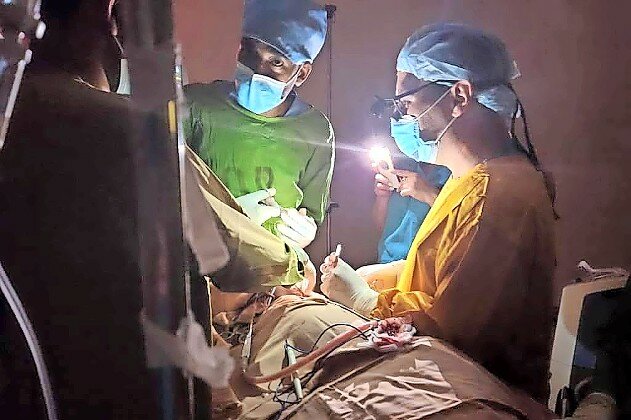Israel’s role in international health diplomacy
Israel and Morocco are promoting a declaration on “Pandemic Prevention, Preparedness and Response” which is an excellent example of “health diplomacy.”
Health diplomacy is a field that merges international relations with healthcare endeavors, with roots traced back to the mid-19th century.
Health and medical challenges transcend borders and nationalities. Thus, there is a growing understanding that health issues must be addressed on a regional if not global level.
The COVID-19 pandemic underscored the urgency of international cooperation in this field. A notable example was the international effort to ensure equitable access to vaccines. The pandemic was a poignant reminder that diplomacy is not only a tool of international relations — it can save lives and shape the future of global health.
Today, Israel is emerging as a global leader in health diplomacy. This is inextricably linked to Israel’s tech industry, of which the health tech sector is an integral part. As documented by Start Up Nation Central, healthcare is currently the largest sector of the Israeli startup ecosystem. It represents 1,600 — around 20 percent — of all technology companies, over 70 innovation hubs, dozens of R&D centers for multinational corporations and global tech companies, and more than 250 active VCs.
In recent years, Israeli diplomats have cooperated with Israeli and American physicians in the field of health diplomacy in Los Angeles, with extraordinary results. Agreements were signed and understandings reached between medical institutions in Israel and Los Angeles in the fields of R&D, collaborative medical innovation and exchanges of medical teams and students.
The institutions involved collaborate on issues like next generation transcatheter heart valves that help make open-heart surgery unnecessary, delivering less-invasive treatments of cardiac and non-cardiac diseases, identifying the causes behind the decrease in female infertility, providing preventive solutions for acute medical challenges and more.
The Israel-LA health diplomacy initiative will also help address critical disparities in Israeli healthcare services; for example, between medical services in the center of Israel and Israel’s periphery. As of 2022, the number of physicians in Israel’s periphery was about 10 percent below the OECD average, yet the demand for medical care has increased and will continue to do so.
There are several reasons for this. In particular, small and medium-sized hospitals struggle to attract residents and researchers due to limited access to advanced procedures, data-driven research and cutting-edge technology. This perpetuates a cycle in which the most talented physicians seek training and employment in major hospitals, exacerbating the critical care gap.
The Israel-LA initiative stands out not only for the fruitful exchange of students and medical professionals but also its broader implications beyond medicine and academia. It builds ties and thus helps decrease anti-Zionism and antisemitism.






